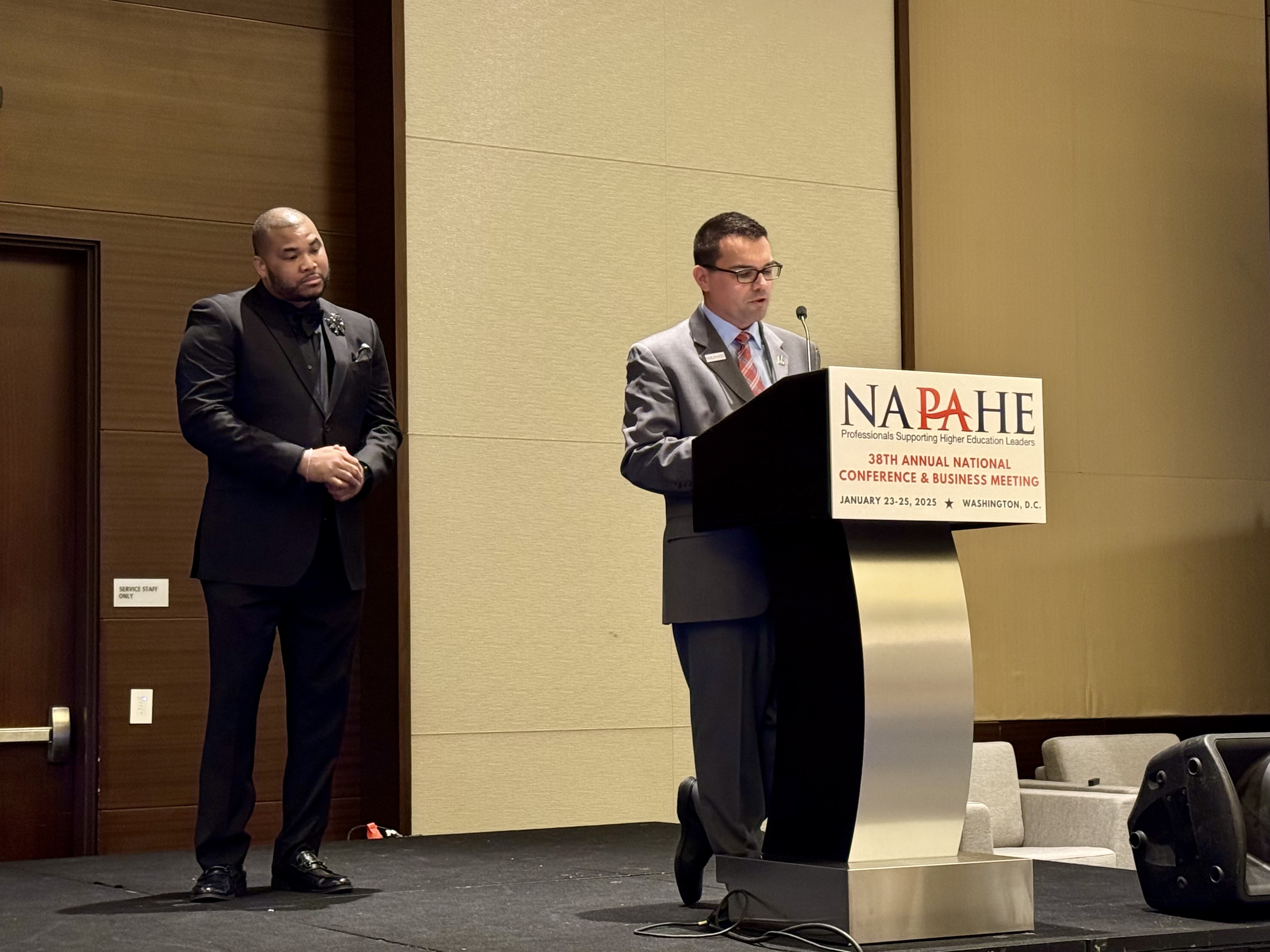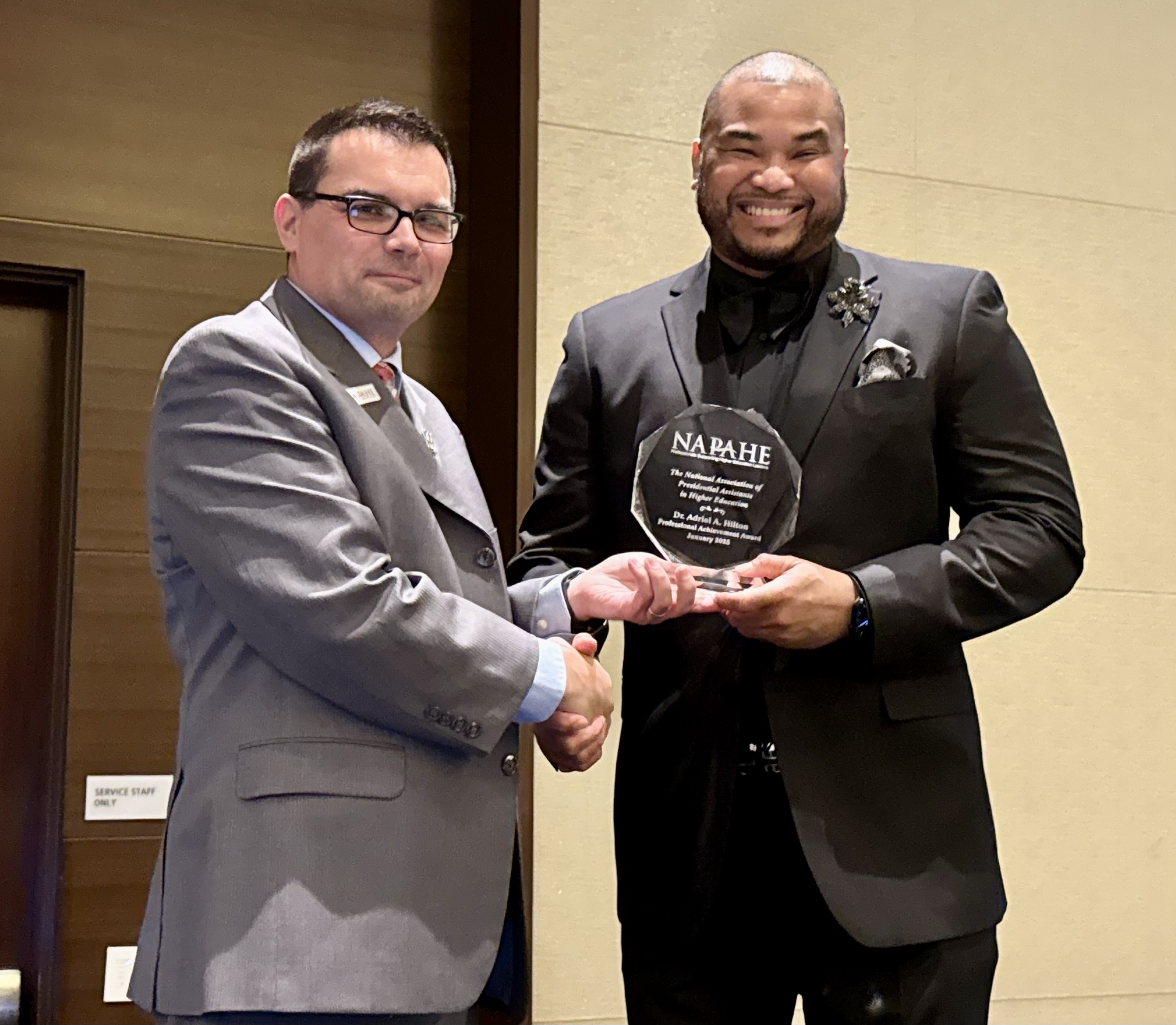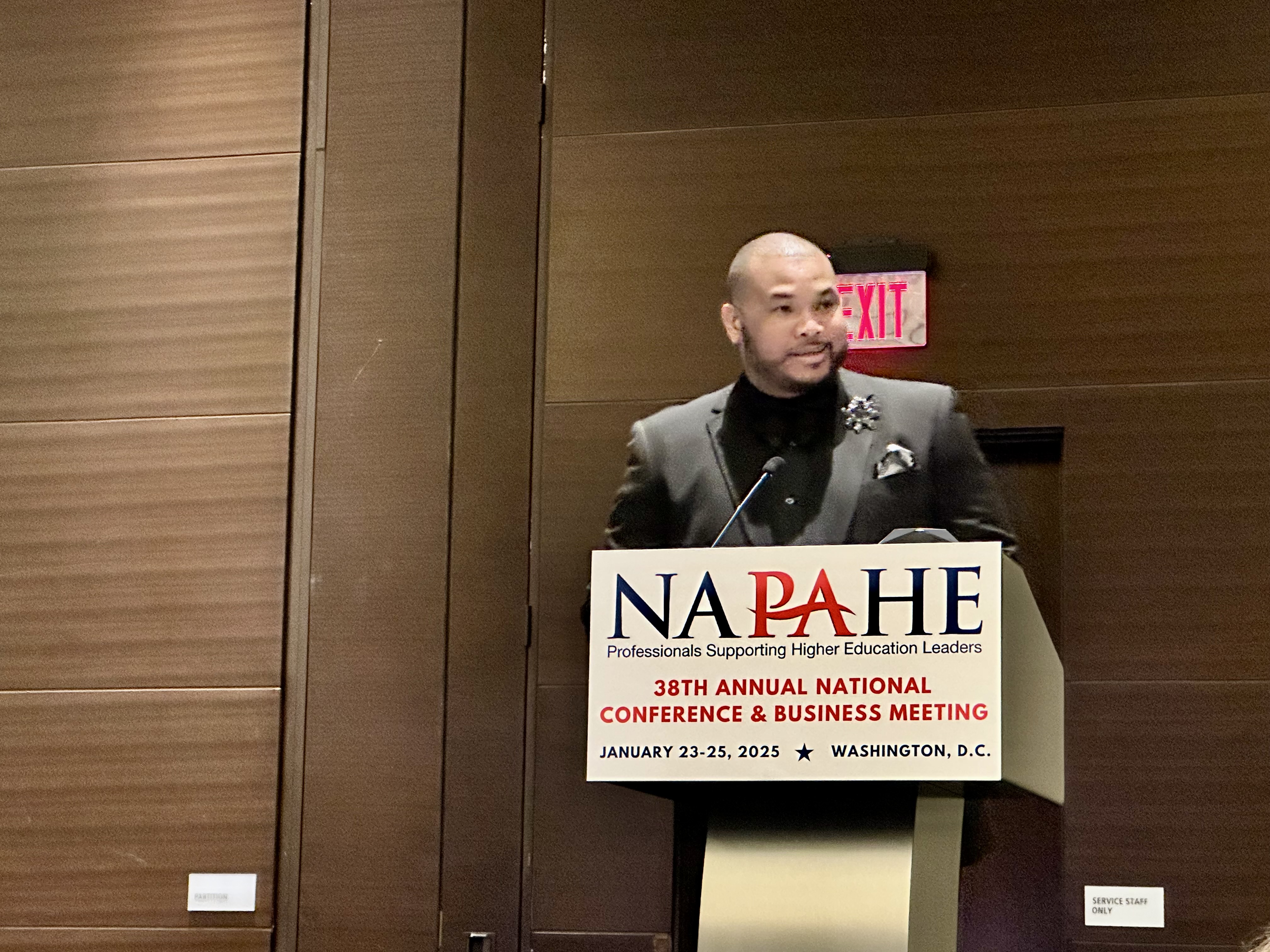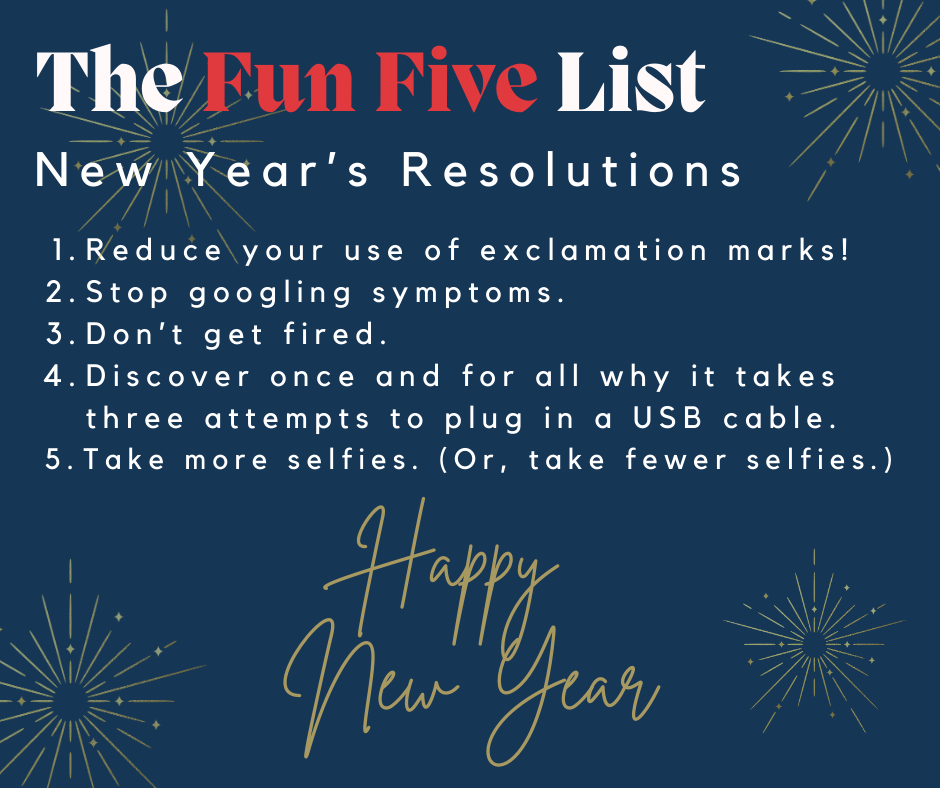NAPAHE Honors Adriel Hilton with 2025 Professional Achievement Award
NAPAHE Honors Dr. Adriel A. Hilton with 2025 Award for Professional Achievement
-

NAPAHE's Board Chair, Michael Sass, presenting Dr. Adriel A. Hilton with the 2025 Award for Professional Achievement.
-

Dr. Adriel A. Hilton (right) poses for a picture with NAPAHE's Board Chair, Michael Sass (left), after receiving the 2025 Award for Professional Achievement.
-

Dr. Adriel A. Hilton speaks to NAPAHE Conference Attendees after receiving the 2025 Award for Professional Achievement.
On Friday, January 24, 2025, the National Association of Presidential Assistants in Higher Education (NAPAHE) was proud to recognize Dr. Adriel A. Hilton with the 2025 Award for Professional Achievement. Each year, the NAPAHE honors prominent leaders, achievements, and service for contributions and impact our members make on campuses in both big and small ways. This year’s awardee has done all of this, and so much more. Dr. Hilton was in attendance to receive this award.
An excerpt from his nomination materials is included below:
Dr. Hilton’s tenure at Upper Iowa University as executive assistant to the president, chief diversity officer, and assistant secretary to the board of trustees exemplifies his significant contributions to higher education. Notably, during this time, Dr. Hilton also served as a board member and treasurer for NAPAHE, demonstrating his commitment to the organization and its mission. His contributions to NAPAHE were instrumental in shaping its financial and strategic direction, reinforcing his dedication to enhancing the professional development of those who support senior leaders in higher education.
Further illustrating his alignment with NAPAHE’s mission, Dr. Hilton also served as chief of staff and executive assistant to the president at Grambling State University. In this role, he continued to provide exceptional support to the university's leadership while actively participating in NAPAHE.
Currently, Dr. Hilton serves as the Director of Programs, Transition, and Youth Success Planning at the Washington State Department of Children, Youth, and Families, where he supports Assistant Secretary Felice Upton.
Dr. Hilton’s extensive experience, significant contributions to NAPAHE, and unwavering commitment to higher education make him a deserving recipient of the NAPAHE Award for Professional Achievement. His career exemplifies the values and mission of NAPAHE, and recognizing him with this award would honor his remarkable achievements and contributions to the field.
We would like to congratulate Dr. Hilton for his accomplishments and thank him for his service to NAPAHE and higher education.


